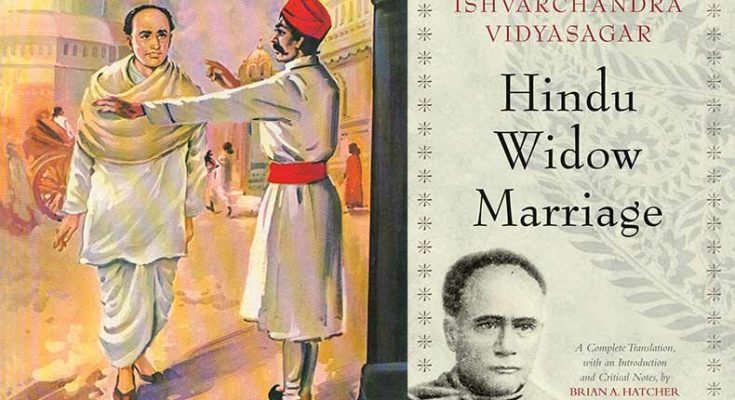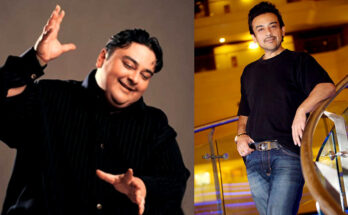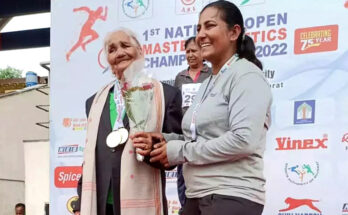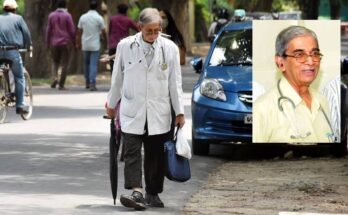He used to spend a number of his earnings for the welfare of those needy individuals, even he used to purchase drugs for those sick people. Image Courtesy – http://www.indiankart.com and http://permanent-black.blogspot.in
Ishwar Chandra Bandyopadhyay was born in the village Birsingha of the Midnapore region in Bengal. His father, ‘Thakurdas Bandyopadhyay’ and mother ‘Bhagavati Devi’ were extremely religious persons. Their financial condition was not that stable. Vidyasagar’s childhood days were spent in absolute poverty. After completing elementary education in a village school, his father took him to Kolkata. It is said that in his journey from the village to Kolkata, Ishwar Chandra learned English numbers by following the roadside mile-stones labels when he was an eight-year-old boy.
Ishwar Chandra was a meritorious student. His quest for acquiring knowledge was intense. He used to study with the help of road lights because their family was in deep poverty and could not manage the cost of a gaslight at home. He cleared every and examination with perfection and one after another. He was compensated with various scholarships for his scholastic execution. Ishwar Chandra used to do a part-time teaching job at Jorashanko to give his family financial support and also to himself.
In the year 1839, Ishwar Chandra Vidyasagar effectively cleared his Law examination. At the age of twenty-one years in the year 1841, Ishwar Chandra joined the Fort William College as the Head of the Department in Sanskrit.
Vidyasagar left ‘Fort William College’ and join the Sanskrit College as ‘Assistant Secretary’ after 5 years. In the first year of administration, Ishwar Chandra prescribed various changes to the current instruction framework. This report came about into a genuine quarrel between Ishwar Chandra and College Secretary Rasomoy Dutta. With this aftermath, Vidyasagar resigned from the Sanskrit College and rejoined Fort William College. This time he joined as a ‘Head Clerk’.
Vidyasagar would begin crying in pain at whatever point he saw poor and feeble individuals lying on the streets and footpaths. He used to spend a number of his earnings for the welfare of those needy individuals, even he used to purchase drugs for those sick people.
He started the idea of remarriage for widows and raised his voice against child marriage and polygamy. He likewise opened the entry of the colleges, educational institutes for the people belong to lower caste. Earlier, it was reserved only for the Brahmins. This kind of ‘generosity’ and ‘kind-heartedness’ was never shown by anybody. So people started to call him “Dayar Sagar” which literally means “A sea of graciousness”.
Ishwar Chandra Vidyasagar is considered one of the pillars of the Bengal renaissance. As such, he figured out how to proceed with the development that was begun by Raja Rammohan Roy. He was a writer, brilliant, and a stalwart of mankind. He started a revolution in the educational system of Bengal. Through his book “Barno-Porichoy” (Introduction to the letter), Vidyasagar refined the Bengali language and made it available to the common people. The title “Vidyasagar”, which means an Ocean of Knowledge, was given to him because of his huge knowledge in every subject. The famous poet Michael Madhusudan Dutta described Ishwar Chandra’s character as “The genius and wisdom of an ancient sage, the energy of an Englishman and the heart of a Bengali mother”.
Some Inspirational Stories of Vidyasagar:
Ishwar Chandra Vidyasagar along with his couple of companions was chipping away at a mission to begin Calcutta University and for this, they were looking for donations. Despite the fact that halted by his kindred individuals, he went to the Nawab’s royal residence of Ayodhya to satisfy the same mission. The Nawab was not a kind person, when Vidyasagar met the Nawab and displayed the entire circumstance before him, the Nawab dropped his shoes in Vidyasagar’s donation bag. At this event, Vidyasagar did not respond but rather simply expressed gratitude toward him and left the spot.
The following day, Vidyasagar sorted out a sale of the Nawab’s shoes just outside the Nawab’s royal residence. Individuals, keeping in mind the end goal to awe the Nawab, including the Nawab’s jahagirdars and court individuals, and so on approached and began offering. The shoes were sold for Rs 1,000. The Nawab on listening to this was satisfied and gave the same sum.
At the point when the Nawab dropped his shoes in the gift sack, then Vidyasagar could have responded in another way. He could have taken this as an affront or got discouraged. In any case, then again, he utilized those shoes as a chance to fulfill his mission. He got the cash as well as satisfied the Nawab. He had constantly worked over his own emotions and towards one objective. Eventually, his fantasy of opening Calcutta University worked out as expected. It turned into a focal point of instruction for fine arts, science, technology, social studies.
He quit drinking milk for a considerable length of time so that the calves could not be deprived of it. With his principle, he did not use to travel in carriages. He thought that the horses might face discomfort while driving him.
It was a well-known fact that Vidyasagar’s affection for his mother was very deep. Once upon a time, he promised his mother to be present at his brother’s wedding ceremony. While returning from his work back to his home, he could not find a ferryboat at the bank of the river Brahmaputra. It was the time of the rainy season, and the river was very much turbulent at that time. He was so indomitable with his spirit that he crossed the turbulent river for fulfilling his promise to his mother. Actually, nothing was in front of him except his mother’s image. Otherwise, crossing the river in the rainy season was nearly impossible.
Once, the famous Indian poet of the nineteenth century, Michael Madhusudan Dutta, fell pitifully into obligations because of his rash way of life. Michael used to stay in Versailles, France, he urged for help to Vidyasagar. Vidyasagar worked to ensure that sums owed to Michael from his property at home were transmitted to him and sent him a large amount of money to France.
He additionally worked for the ladies’ upliftment. While mulling over in Calcutta, he inhabited the home of a friend whose sister was a youngster dowager.
At some point, his old master chose to wed a young girl. Ishwar Chandra was irritated and exhibited his annoyance by declining his master’s friendliness. Within a year, the master died. Not only that, the master left behind a girl widow with acute helplessness. Ishwar Chandra made a resolution at that moment to give his life for enhancing the status of Hindu widows and empowering remarriage.
Ishwar Chandra likewise turned into an energetic supporter of ‘female education’ and a rival of ‘polygamy’. With valuable backing from individuals like Akshay Kumar Dutta, Vidyasagar presented the act of widow remarriages to Hindu society. Vidyasagar became active in proposing and pushing through the Widow Remarriage Act XV of 1856 in India.
The colossal researcher, academician, and social reformer passed away on 29 July 1891 at the age of 70 years. The noble laureate Rabindranath Tagore commented after Vidyasagar’s death, “One wonders how God, in the process of producing forty million Bengalis, produced a man!”





